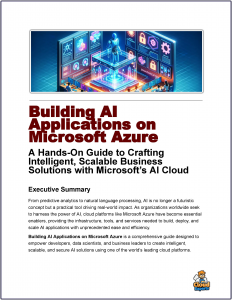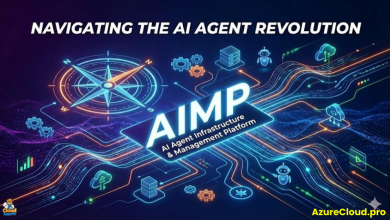Building Intelligent Multi-Agent Systems
Azure AI Foundry empowers developers to create such intelligent multi-agent systems with remarkable ease and flexibility.
 Azure AI Foundry’s Agent Service is a cornerstone for building multi-agent systems.
Azure AI Foundry’s Agent Service is a cornerstone for building multi-agent systems.
It enables developers to create, deploy, and scale AI agents that can interact with each other, process data, and execute tasks autonomously.
Integrated with tools like Semantic Kernel and AutoGen, the Agent Service streamlines the orchestration of complex workflows, reducing the need for extensive custom coding.
Introduction to Multi-Agent Systems
In the rapidly evolving landscape of artificial intelligence, multi-agent systems represent a transformative approach to solving complex problems.
Unlike single-agent AI models that focus on isolated tasks, multi-agent systems consist of multiple AI agents working collaboratively or autonomously to achieve shared or individual goals. These systems mimic the collaborative nature of human teams, where each agent brings specialized capabilities to tackle specific aspects of a problem, resulting in more efficient, scalable, and robust solutions.
Azure AI Foundry, Microsoft’s enterprise-grade platform for AI development, empowers developers to create such intelligent multi-agent systems with remarkable ease and flexibility. By leveraging Azure’s tools, such as the Agent Service, Semantic Kernel, and AutoGen, developers can orchestrate agents to perform complex workflows, from automating business processes to enhancing customer interactions.
Why Multi-Agent Systems?
Multi-agent systems are ideal for scenarios where tasks are too intricate for a single model or require diverse expertise. For example, consider a customer service application that handles inquiries, processes orders, and generates reports.
A single AI model might struggle to manage these varied tasks efficiently. In contrast, a multi-agent system can assign a language model to handle conversations, a data-processing agent to manage orders, and an analytics agent to generate insights, all working in harmony.
Key benefits of multi-agent systems include:
- Modularity: Each agent focuses on a specific task, making systems easier to design, maintain, and scale.
- Scalability: Agents can be deployed independently, allowing systems to handle increased workloads seamlessly.
- Resilience: If one agent fails, others can continue functioning, improving overall reliability.
- Specialization: Agents can leverage different models or tools optimized for their tasks, enhancing performance.
Azure AI Foundry simplifies the creation of such systems by providing a unified platform to define, build, and manage agents, with built-in tools for collaboration, safety, and observability.
Building Agents
Imagine you want to create a smart app or a virtual assistant—like a chatbot that answers questions or helps book flights. Microsoft’s Azure AI Foundry is a toolkit that makes this easier, even if you’re not a tech expert. It’s like a big toy box full of ready-made pieces (like AI brains, tools, and instructions) that you can put together to build something cool.
Design, customize and manage your own custom applications with Azure AI Foundry right from your code. With Azure AI Foundry, leverage over 1,800 models, seamlessly integrating them into your coding environment to create agents and tailored app experiences. Utilize Retrieval Augmented Generation and vector search to enrich responses with contextual information, as well with built-in services to incorporate cognitive skills such as language, vision, and safety detection.
Dan Taylor, Principal Product Architect for Azure AI Foundry SDK, also shares how to streamline your development process with tools for orchestration and monitoring. Use templates to simplify resource deployment and run evaluations against large datasets to optimize performance. With Application Insights, gain visibility into your app’s metrics, enabling data-driven decisions for continuous improvement.



